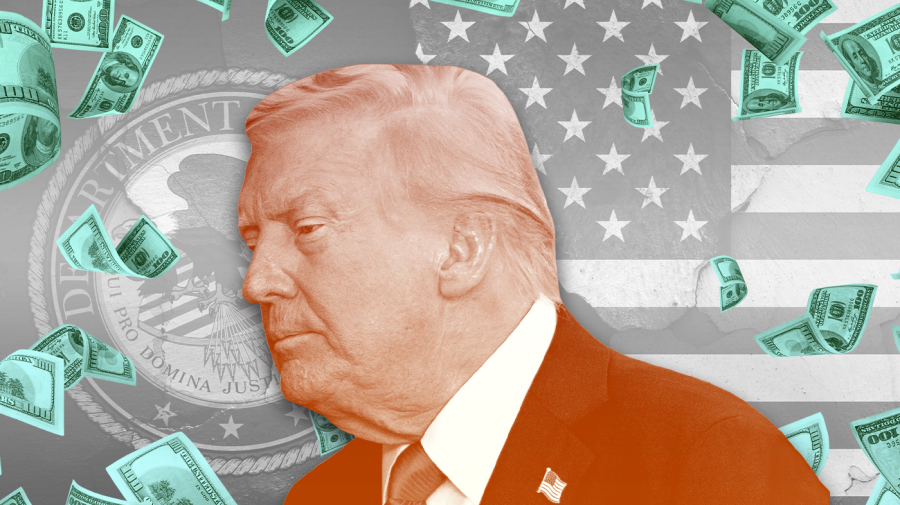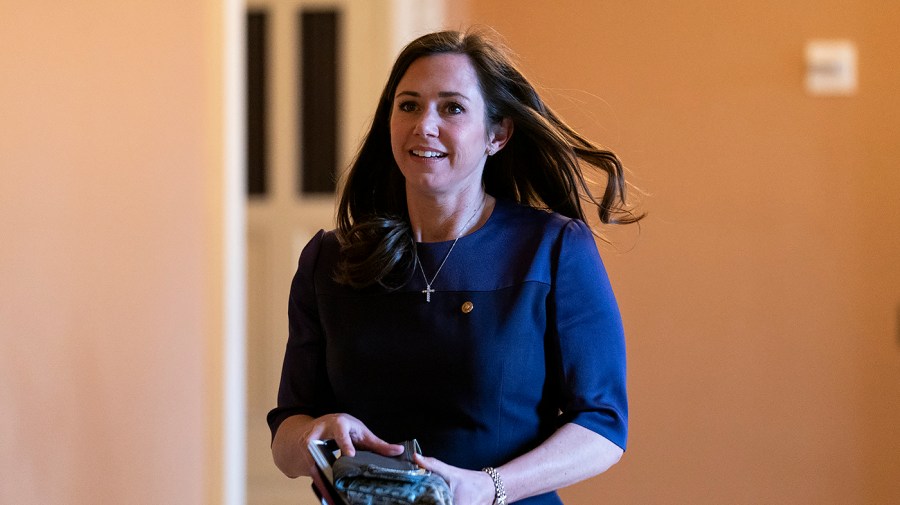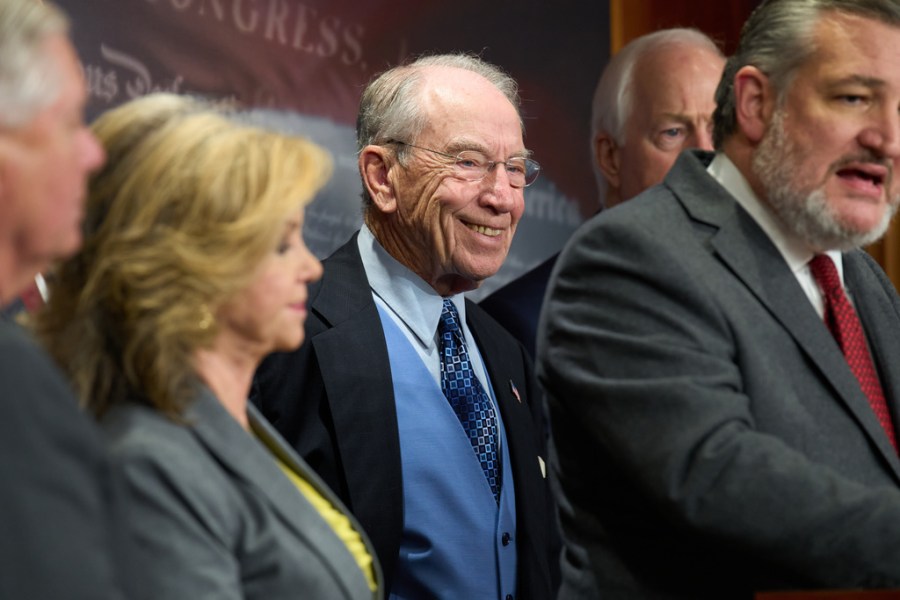
President Trump’s bid to have his own Justice Department pay $230 million as compensation for multiple federal investigations into his conduct could face some legal hurdles if successful.
The president confirmed Tuesday that his personal legal team is seeking a settlement, a request that could prompt his appointees — including his former defense attorneys — to decide whether to pay.
This unique scenario has drawn outrage from Democrats, who have called the move “completely illegal and unconstitutional.”
But experts say there is little legal recourse if the DOJ decides to settle, while the chances of ordinary Americans getting paid on claims like the president’s are slim.
The New York Times first reported the potential settlements. Trump later referred to the situation in Oval Office comments.
According to the Times, Trump filed two claims seeking damages: the first, filed in late 2023, alleges various violations of his rights arising from the FBI and the special counsel investigation into Russian ties to his 2016 campaign. The second, presented in the summer of 2024, accuses the FBI of violating Mar-a-Lago’s privacy by searching it for classified documents and what it considers malicious prosecution by the Justice Department.
Claims are required to begin the process of suing the federal government under the Federal Tort Claims Act (FTCA), the law Trump used to allow lawsuits for damages against the US for negligent acts of government employees. After waiting six months, a claimant can file a lawsuit.
Rupa Bhattacharya, former director of the Justice Department’s Torts Branch-Civil Division, told The Hill that FTCA claims are brought every day and are one of the most active areas of litigation against the government.
He explained that a typical claim that is handled during the administrative claims process is something like a traffic accident or medical malpractice, where it is “very clear that someone did something wrong.” Such agreements are not rare, he said, but “they certainly are not used in cases like this.”
“I honestly can’t imagine a circumstance in which a career Justice Department person looking at that settlement would approve it,” Bhattacharya said.
For everyday people seeking compensation from the government, it is impossible to get paid on an administrative claim like Trump’s alone.
Nima Rahmani, a former federal prosecutor and co-founder of West Coast Employment Lawyers, which represents plaintiffs in personal injury and civil litigation, said she has handled “hundreds and hundreds” of such claims and has never had any accepted.
“They are rejected every time,” Rahmani said.
“So, you make your claim, it is denied and you file your lawsuit,” he said, adding that it would be “shocking” if Trump’s settlement was approved.
Nonetheless, it seems Trump is willing to pay up without taking the government to court.
The president told reporters Tuesday that he had not discussed specifics with his lawyers but that he is owed “a lot of money.” He vowed to donate it to charity.
“It’s very strange to be making a decision where I’m paying myself,” Trump said.
The decision will not rest with Trump himself, but with his subordinates in the Justice Department.
While lower-level career employees can seek settlement decisions under certain dollar amounts, compensation for higher amounts, such as the $230 million that Trump is seeking, will be decided by either the Deputy Attorney General or the Associate Attorney General.
Deputy Attorney General Todd Blanche was Trump’s former defense attorney, and Associate Attorney General Stanley Woodward represented Trump’s co-defendant, Walt Nauta, in the classified documents case.
Stephen Gilers, a legal ethics scholar at NYU School of Law, said in an email that government officials acting at the president’s discretion should not decide whether Trump can be reimbursed for the legal fees he incurred defending himself.
“His interest in keeping his job conflicts with his obligation to make disinterested decisions toward his customer, the United States,” he said.
Earlier this week, Justice Department spokesman Chad Gilmartin said officials would “follow the guidance of career ethics officials.” Attorney General Pam Bondi fired the department’s top ethics adviser in July.
On Thursday, the top Democrats on the House Judiciary and Oversight and Government Reform committees announced an investigation into the settlement bid.
Representatives Jamie Raskin (D-MD) and Robert Garcia (D-Calif.), ranking members of the House Judiciary and Oversight and Government Reform committees, respectively, suggested that Trump could have taken his claims to court if he believed they had merit, but instead, “waited” until he became president to “secretly order” his subordinates to approve the agreement.
He called the move “a clearly illegal and unconstitutional attempt to steal $230 million from the American people”, arguing that it violates a provision prohibiting presidents from taking payments from the federal or state governments beyond their salaries.
Paul Figley, former deputy director of DOJ’s FTCA staff in the Civil Division, suggested looking at the situation with the facts changed: Imagine that a helicopter flew in to pick up the President at his home, and the helicopter crashed and the house burned down.
“You’ll have the same ethical issues that you have here. Who will approve the deal?” said Figley, emeritus professor at American University and visiting professor at Villanova University.
“All we can see is that there is liability and it is something that would be within the sovereign immunity exemption,” he added, “and it would not be illegal or unconstitutional for the President to file an administrative claim and then take the money.”
Figley suggested that the decision rests with the Justice Department and that it is ultimately Congress’s fault.
Before 1948, he said, Americans seeking compensation from the government had to go to Congress for a special bill. However, Congress “hated that process” because their constituents were never satisfied, and there was “no good way” to determine whether the money should be paid.
When Congress passed the FTCA, it handed over that power to the executive branch, which pays any settlements from the Judgment Fund – a pot of money appropriated indefinitely to pay court judgments and settlements in lawsuits against the government.
“Because Congress has handed over power to the executive branch, it’s the executive branch’s decision,” Figley said.
Rahmani agreed that “there is no legal recourse” to challenge any decision to compromise with Trump.
“They may be heard politically, but legally, there is no process for a taxpayer or a congressional representative to challenge the actual deal,” Rahmani said.
And Bhattacharya declined to rule it out entirely, saying it would be “difficult” to mount a legal challenge to the potential settlement, primarily because it would be difficult to find a third-party plaintiff with the legal standing to pursue the case.
The right person could file a lawsuit claiming that the Justice Department made an “arbitrary and capricious” settlement decision or potentially claim under the False Claims Act that Trump submitted false claims to the DOJ and was paid.
But without standing, which requires a concrete and personal stake in the outcome of the trial, the challenge will likely fail.
Bhattacharya said, “I have not come up with any great theory yet.” Bhattacharya asked who that person could be. “But I’m still thinking about it.”












